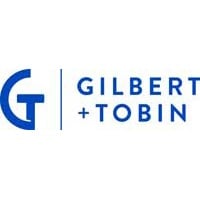

Head of legal and company secretary | BT Australasia





Dan Cootes
Head of legal and company secretary | BT Australasia
Head of legal, Southeast Asia and Australasia | BT (British Telecom)
Head of Legal, SE Asia and Australasia | BT Australasia
Head of legal and company secretary, BT Australasia | BT
As head of BT’s Australasia legal team, Dan Cootes has advised on many complex global telecommunications and outsourcing deals, as well as supporting the BT business through a sustained period...
Head of legal and company secretary | BT Australasia
Dan Cootes has over 15 years’ experience advising clients on commercial technology, intellectual property and data privacy issues, and has particular experience in negotiating complex global contracts. He currently acts...
What are the most important transactions and litigations that you have been involved in during the last two years?
For BT’s Australian business, we are very happy with the work we’ve done over the past few years to build our Australian cyber-security business and product development teams. Our local business is now as much a security business as it is a telecommunications one, although naturally these go hand in hand.
Do you have any techniques in order to provide commercially-focused and optimal business advice to your company? If so, how do you get these across to more junior lawyers in the team?
I’d say we have approaches more than techniques.
I always think you can deliver more value if you can guide your business early, either because you’re best positioned to influence things when there is early project energy and more willingness from the business to change tack, or simply when it’s best to “nip things in the bud”.
To do these things we try to stay close to the business, and earn sufficient trust to listen and chime in when important. Provided you keep your powder dry on matters that don’t really need your input, you tend to have more airtime for input on the commercial, reputational and common sense issues that really count.
Another approach we take is to always try and understand the key drivers of the overall business and the individuals within it. One of the things we encourage each other to do is always think about where your client is coming from, what are their incentives and motivators (for example, what are they measured on, how do their projects fit within group strategy, what is their professional perspective on any issue). This should never distract from your focus on the company as a whole, but if you can understand where individuals are coming from, this can help your prioritise matters, identify any key threshold issues and bring other stakeholders in.
Having worked for large multinationals throughout your in-house career, what changes in the perception of the in-house lawyer by your business colleagues have you observed in this time?
I’ve been working in global corporate legal functions since 2008 in both the UK and Australia. During that time, I’d agree there has been a positive shift in the general perception of corporate counsel by their business clients. Some of the perceptions of legal teams that I’ve seem ebb away over the years include the notion that legal are “blockers”, “will only say no” or are best to be avoided because things “will just get tied up”. It’s a long time since I’ve heard the “PPU” (Profit Prevention Unit) joke!
The change in perception has been gradual, and I suspect has developed from a growing recognition of the benefits of proximity, as well as the quality and numbers of lawyers that now work as corporate counsel.
From what I see, most corporate counsel now seem to be appreciated by their clients as business partners that will help – and are absolutely necessary – to get things done. There is also an aligned expectation that counsel understand their business at a deep level, bring macro knowledge of their company to bear on specific issues, and can spot issues before they arise.
What are the key considerations you have when developing your in-house legal support strategy?
To me, the obvious starting point is making sure you understand the forward looking business strategy, and then thinking through what will be required of the legal team to deliver on that.
From there, key considerations are breaking down the elements of support into the usual matrix of strategic importance and complexity, and starting to think through what is the best way to resource and deliver that support. Given the range of support and solutions now available to in-house teams, the next stage is quite interesting. Whereas you’d still analyse that matrix against the right blend of in-house and external support, you might now also be thinking about whether you can adjust that blend again by introducing tech tools or smarter workflow.
Do you use any “legal tech” products, and do you find them a helpful management device?
We’re in the midst of several “tech” changes across the legal function so my intuitive response is to say, “ask me again in 12 months”. However, that said, we’ve made good use of a few “tech” solutions such as a central portal for legal requests, some contract automation, matter management and self-service legal resources.
We also find that there is plenty of non-legal “tech” that can make the life of a legal team easier, such as Teams and other collaboration tools. They’re not necessarily perfect for legal needs, but the upside is that you can often get started quickly and IT is always happy to support you working on the business’ chosen platforms.
Looking ahead, I can see that quality matter management data and reporting, as well as sophisticated contract search and review tools will become necessary items in the corporate counsel tool belt.
Do you have any effective techniques for getting the most out of external counsel, in terms of how to instruct them?
I won’t pretend to be a sage on this one, as we manage a lot of our matters within our team. But when we do instruct externally, my focus is always on meaningful scope limitations and where the boundaries of the work lie. We will generally seek a fixed or “ceiling” arrangement so scope clarity is important for both parties. Trust is also really important, and I’ve always tried to direct work scope early, clearly and fairly, and with consideration for the lawyers putting in the hours to deliver.